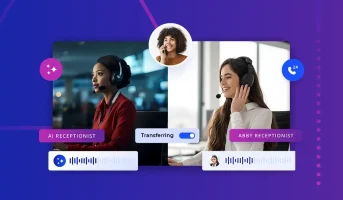Most of us know that we should empathize with others, but do we really know how to? In most scenarios, we can discern what situations call for empathy and which do not. The simple act of knowing which situations demand empathy is a good start, but that doesn’t mean we’ll empathize just because we know we should. Trust me, I’ve been there one too many times. I can sometimes get stuck on what I should say, that the words never actually leave my mouth.
What is Empathy?
Empathy is the foundation for human connections. Empathy allows you to open your perspective to the point of view of others. It’s the ability to put yourself in someone else’s shoes without judgment and really feel what that person is going through.
Why is Empathy Important?
With the world’s shift to automation, human connections are priceless and powerful.
Not only is it psychologically proven that we are wired to need human connections, but it is also one of the top ways to go above and beyond in your customer experiences.
Consumers will pay a premium for a humanized experience because only humans can understand our wants and needs.
Not only are we currently in a digital era, but we’re also at a stage where people are craving human connections. With COVID-19 at the center of everyone’s life, most are experiencing pain, loss, and loneliness. We all know at least one person that can use a little bit of our empathy whether it’s for the loss of a family member, the loneliness of having limited human interactions, or even the loss/downturn of a business.
In times like these, it is important to have the ability to understand someone else’s perspective. Although we might not have gone through the same situation as someone else, acknowledging their thoughts and feelings can go a long way.
Many times, people don’t need solutions, they simply need a listening ear that will acknowledge their situation and reassure them that everything will be okay.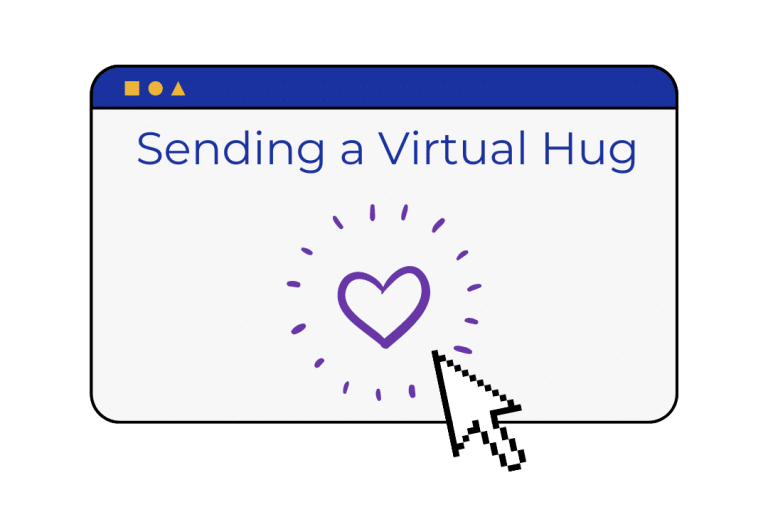
It’s similar to my baby, Luna. Luna might get hurt and cry. There isn’t much that I can do to physically take her pain away, but the act of me just being there to comfort her and tell her everything will be okay, quickly wipes her tears away. Empathy makes me a superhero in her eyes.
While you might not be able to physically take someone’s pain away, you can be someone’s emotional lollipop. You know, when the doctor gives your child a shot, your child cries, but the simple act of giving them a lollipop cheers them up. Be that pick me up for someone else.
Empathy Drives Inclusiveness
Empathy is also important because, without it, it is hard to create an inclusive environment. We need to have the ability to hear and understand each other’s perspectives in order to create an inclusive workplace. Inclusivity does not happen without empathy. If we do not stop and take a moment to think how our actions affect others, we are limited to only our own point of view.
For example, last year due to COVID-19, we had to cancel our yearly holiday gala. I was tasked with creating a fun way to celebrate the holidays. I spearheaded our “20 Days of Festivities.” I thought to myself, “I can’t call it our ‘20 Days of Christmas’, because that is not inclusive.” Great thinking, right? WRONG! The issue is that my “inclusiveness” stopped there. I thought as much as to not plaster Santa’s face everywhere around the office and to not use the word “Christmas,” but I didn’t think of including any other traditions than my own.
December came, and it was brought to my attention that anyone who celebrates a holiday other than Christmas, such as Hanukkah or Kwanzaa, felt left out of our celebrations. This was a huge learning experience for me.
I took a step back to assess how my lack of awareness affected others. As someone who has never been left out of much and as someone whose holidays are always accounted for, I put myself in my coworkers’ shoes. It was then and only then that I understood why they could be hurt. Without empathy, I would have deprived myself of this learning lesson and from creating a more inclusive environment moving forward.
Empathy over the phone is just as important as empathy in a person. Realizing and accepting your possible lack of awareness can open up the opportunity to understand where others may be coming from.
Does Empathy Only Apply to Sad Situations?
While most people associate empathy with sad scenarios, this is a common misconception. Luckily for us, sadness is not the only emotion we feel.
Thankfully we also feel emotions such as happiness, pride, stress, and frustration to name a few.

For example, let’s say your friend is extremely proud to share with you that they are the first in their family to graduate college. While this is not a sad scenario, you can totally put your empathy skills to use. You can say something like, “Congratulations! I can only imagine how huge a milestone this is for you and your family. I am so proud of you!”
On another note, one of your callers can be in the process of buying a house. They most likely aren’t feeling sad but most likely they are feeling some form of stress. I’ve personally never bought a house before, but I can still imagine what emotions are associated with buying a house. Focusing on the emotion allows me to think of how they might be feeling. You can say something like, “Buying a house can be extremely stressful and exciting at the same time. I know it will all work out in no time! Allow me to get Trish on the line for you. One moment please.”
Why Is It Hard to Empathize With Others?
If you find that expressing empathy can be difficult, don’t worry, you are not alone. We conducted a survey and found that about 50% of our participants also struggled with empathy.
Half of our participants found that when given the opportunity to empathize, they tend to hold back. Some purposefully and strategically avoid it, but others truly do not know what to say.
Empathy can be difficult because our brain tries to do everything it can to protect us from anything related to pain. Our brain holds us back from sharing another person’s pain, so we have to find ways to trick our own brain.
Let’s take a deep dive into what holds people back from empathizing with others.
What Stops Us From Empathizing?
There are many factors that contribute to someone not empathizing when given the opportunity. Let’s review the top two barriers to empathy. Buckle your seatbelts, ladies, and gentlemen, because we are about to ride the empathy emotional rollercoaster!
Barrier 1: The Fear of Saying the Wrong Words
We’ve all stuck our foot in our mouth a time or two. Unintentionally offending someone can make matters worse, so the fear of saying the wrong words is valid. Although valid, we cannot let this fear or past negative experiences jade us.
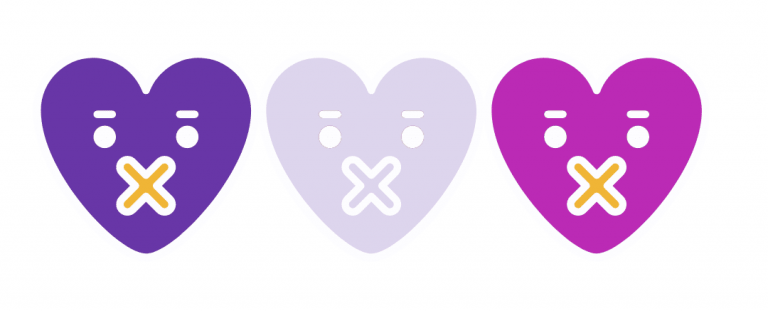
When it comes to delicate situations, the last thing you want to do is say the wrong thing which in turn causes people to avoid empathetic statements.
For example, one of my friends experienced a miscarriage and shared her experience with me. I froze for a moment because I knew I should acknowledge and reassure her, but I didn’t know-how.
Looking back, I realize that this is where most people would hold back from being empathetic. Most of us can acknowledge situations that call for empathy, but empathetic phrases can often be left unspoken because we might not know what to say.
In a situation as delicate as hers, it took me a minute to think of what to say without making matters worse.
If you are in a similar situation, you can say something like: “I am sorry. I can only imagine the devastation you and your family must be going through. I hope you are okay. If there is anything I can do, please do not hesitate to reach out to me.”
Remember, people benefit from empathy! You have the power to positively or negatively impact someone’s day by the verbiage you use.
Barrier 2: The Inability to Imagine Someone’s Experience
One of the most common reasons I’ve heard as to why people don’t empathize is due to them not personally having gone through a certain situation.
Imagine you are in their situation and ask yourself:
- How would I act if I was going through what they are going through?
- How would I feel if I was going through what they are going through?
- What would I need to hear to make me feel better if I was going through what they are going through?
You can still empathize with someone without having gone through a similar situation. The key is to recognize and focus on the emotion, not the actual situation. Empathy over the phone is just as important as empathy in person
For example, let’s say you are on the phone with a truck driver. The truck driver calls you frantically crying because they received a DUI and now their license is suspended. They are worried and stressed because, without their license, they cannot work.
While you might not be a truck driver, have a DUI, or have a suspended license, you can empathize with the emotions of stress and worry.
If you only focused on the caller’s situation, the most you might be able to do is sympathize, but because you are empathizing with the caller’s emotions, that allowed you to be empathetic because you may have felt those emotions before. The emotion is what you’re able to relate to which in turn results in an empathetic conversation.
What Stops Us From Empathizing Over the Phone?
Empathizing over the phone can sometimes be more challenging. Over-the-phone communication relies on the words you say and the tone you use. Let’s review the top empathy barriers over the phone.
Barrier 1: Rushing
The act of multitasking is essential in the modern workplace, but it does have its drawbacks. When employees do too many things at once, some things can get missed along the way, even if you are the world’s greatest multitasker.
Let’s say a virtual receptionist has a multi-phone line with multiple calls coming in regularly. Two out of the four callers on the phone are frustrated that they have not received a callback. While the virtual receptionist might want to empathize with their frustration, she also has two other callers on hold and live chat messages coming in as well.
In this common scenario, the receptionist is most likely to feel rushed to get as many people off the line as soon as possible, to attend to everything else occurring or she might put the callers on a very long hold which in turn can make the callers even more upset.
The virtual receptionist can multitask, but it may affect the company’s customer service.
The receptionist can take a deep breath while the callers are on a brief hold to regather her thoughts and quickly create a plan of action. The number one question she should ask herself is, “How can I add value to my guests simultaneously?”
When she comes back on the line and takes a moment to quickly empathize with the caller, that alone will boost the caller’s experience. The caller will be more likely to leave a message and end the call with hopeful spirits due to the receptionist’s acknowledgment and reassurance of their feelings.
If she didn’t take a moment to validate the caller’s frustration, when she offers to take a message, the caller will most likely be furious because they don’t feel heard or understood, and tag on the high hold time. This is the start of an irate caller.
In this scenario, you can say something like, “I am so sorry to hear you’ve had to call so many times. That’s unacceptable. I would be frustrated too! I am going to do everything I can to get this resolved for you right away!”
Remember, empathy is your secret weapon to diffuse an upset or frustrated caller. Often what makes callers upset or irate is the lack of empathy paired with high hold times.
Barrier 2: Not Being Able to See The Caller
Some people need to feel someone’s energy to understand their emotions, but unfortunately, we don’t have that luxury over the phone. Just like we cannot see our callers, they cannot see us, which is why words and tone matter!
Empathy over the phone does take more thought and intent behind our words.
The key in this situation is to listen for keywords.
Common keywords we listen for are:
- Injuries
- Sicknesses
- Something being urgent/important
- Frustrations
- Anything new (new baby, business, marriage, car, house, renovation, etc.)
Whenever we hear any of these keywords over the phone, we then know to immediately recognize and validate the emotion.
Another way to overcome this barrier is to listen to the caller’s tone of voice.
Ask yourself:
- Does the caller sound mad?
- Does the caller sound annoyed?
- Does the caller sound excited?
- Does the caller sound happy?
- Does the caller sound stressed?
Paying attention to the caller’s tone of voice gives you an insight into the emotion they might be feeling.
Barrier 3: Not Knowing the Caller Personally
Research shows that we have more empathy for people we know than those we don’t. Makes sense! You are more likely to feel empathy for a family member, friend, or coworker than someone you do not know.
The good thing is that the resolution to this barrier is easy: Trick your brain to think of the caller as a friend or a family member.
What would you say to a friend or a family member in that situation? How would you let a friend or a family member know you understand their feelings? Would you be dismissive if your friend or a family member were going through the same scenario? The answer is most likely no. You would think of a way to comfort and reassure them.
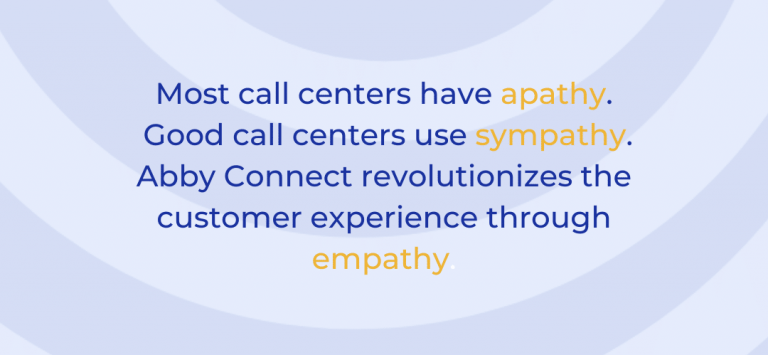
Barrier 4: Assuming the Caller Doesn’t Want to Hear It
Assuming the caller doesn’t want to hear your empathy is just that, an assumption. You know what they say happens if you Assume. (If you don’t, I’ll let you figure that one out on your own.)
Most call centers have apathy. Good call centers use sympathy. Abby Connect revolutionizes the customer experience through empathy.
As an employee who answers the phones, the top priority is to meet the company’s needs and then the caller’s needs. It’s easy to get caught up in the caller’s needs, but at the end of the day, your priority is to make sure you’re meeting what is required of you.
For example, our clients pay a premium price for our ability to empathize and connect with their callers. If we assume the caller doesn’t want to hear our empathy and we do not empathize, then consequently we did not meet our client’s needs.
Barrier 5: Not Wanting to Open a Can of Worms
Sometimes I find that receptionists don’t empathize because they do not want to open a can of worms and make their calls longer. And it is a valid concern. Especially for us, our clients pay top dollar per minute, so we don’t want to keep callers on the line for longer than needed.
The solution to this barrier is call control! Using call control techniques will allow you to empathize and keep the call at a reasonable length.
Call Control Techniques:
- Empathize as close to the beginning of the call as possible.
- As soon as you hear keywords, recognize and empathize with the emotion immediately.
- Quickly follow your empathy with a question or action statement.
- “I can’t imagine how frustrating that must be. Allow me one moment please to try Joe’s line,” then proceed to try the line or place them on hold.
- Use our AER combo
- The AER Combo is our holy grail!
- Acknowledge the caller’s emotion. Empathize with their emotions or situation and then Reassure them with your action plan.
- “Congratulations on your new website. I apologize for any tech issues you are experiencing. I know how important it is to make sure everything is working properly. I will do everything I humanly can to get you a call back as soon as possible.”
Barrier 6: It’s a Straightforward Call
When a caller is extremely straightforward, you might not be able to recognize emotion.
For example, the caller might say, “Hi, Can I talk to Pam? I am returning her call.” In this instance, it’s hard to empathize because there isn’t a clear emotion, but we believe you can always empathize.
You can say something similar to: “Of course, I know I hate playing phone tag! One moment please while I get Pam on the line for you.”
What Scenarios Make it Difficult to Empathize?
We’ve talked about the different barriers in empathy over the phone, now let’s dive into a few scenarios that can make empathizing difficult.
Scenario 1: The Emotionless Caller
From time to time, there are callers who do not express or display a ton of emotion. Their lack of emotion makes it difficult to want to empathize with them because they may seem standoff-ish. It’s normal to not want to connect with someone who seems like they don’t want to connect with you.
When this happens, focus less on their lack of emotion and more on what the call is regarding. The caller’s needs will give you an opportunity to empathize. You might feel silly or awkward but push through those feelings, and just do it!
Scenario 2: Callers Who Haven’t Gotten a Call Back
Callers who have not received a call back are usually upset or irate. Empathy is always your secret weapon! The best action you can take in this type of scenario is to agree with the caller.
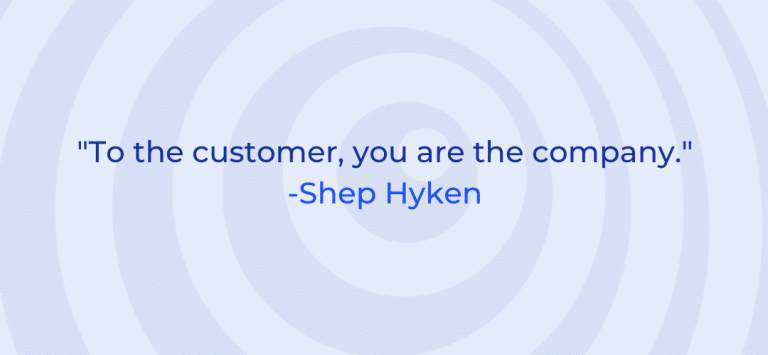
Your empathetic statement can sound something like: “You are absolutely right! This is unacceptable. You shouldn’t have had to call this many times. Let’s get this resolved right away.”
Most employees steer away from agreeing with a caller when a caller is upset but keep in mind that you should not speak negatively about your client or employer when you empathize. You are simply agreeing with their frustrating situation.
Also keep in mind that when a caller is irate, word choice matters.
What you want to avoid is saying you will do something the caller can do themselves. For example, avoid saying the phrase “take a message.” When you say that you will take a message or will leave a message, you are giving the caller the impression that you are taking a step, they can take themselves. They themselves can send an email.
If a caller is not getting a callback, your empathetic response can sound like, “I am going to take down your information and will make it my mission to make sure Joe gives you a callback, so that you don’t have to call another time.”
Saying you will take a message has the same effect as the caller emailing your company and not hearing back. In our experience, we have found that saying you’ll “take a message” does not give the impression that you are going above and beyond.
So, even if you are taking a message, instead say you are “taking down their information.” They don’t need to know in what method the information will be delivered, so let’s leave that part up to their imagination.
Scenario 3: Difficult Personal Matters
Sometimes the caller’s situation seems to be for their ears only. These types of callers should be gently handled with extra tender love and care (TLC). As difficult as it is for you to hear what the caller is saying, it is most likely a thousand times more difficult for them to talk to you about it.
It can be extremely difficult to empathize when a call is regarding a difficult personal matter.
For example, if you answer phones in the legal field, you may receive calls regarding emotional, domestic, or sexual abuse. These topics are not easy to discuss, so it’s important that you do whatever you can to not make the caller repeat themselves multiple times to multiple different people.
While empathy is important, try to stay away from empathizing with your own story in these situations. When a caller is explaining their story, the last thing they want to hear is how something traumatic happened to them. We are here to add value to each caller, not to make them feel the need to comfort us.
In this instance, the best you can do is listen without judgment.
Do not judge or criticize the caller’s decisions or actions or give your opinion in that matter. Simply be their “no-judgment zone” and try to help to the best of your abilities.
Withhold Judgement
Casting judgment can most likely cause you to refrain from empathizing with your caller.
Here is a list of common reasons callers are pre-judged:
- The caller seems to be rude
- The caller is talking slowly
- The caller appears to be in a rush
For example, let’s say a caller is talking fast. You may judge them to be in a rush; therefore, you conclude that you cannot empathize or connect with them.
That is a complete assumption that can stop you from making a connection. There is always time to make someone feel like they matter! Try to substitute your judgment with empathy. You never know how much the caller may have needed your listening ear or connection.
Empathy over the phone does not have to be difficult. Most of your empathy woes can be solved by being open minded and by truly walking a minute in the caller’s shoes. There are a million and one reasons to not empathize if you look for them, but know that empathy, kindness and human connections are always in style.
To improve your customer experience, you first must recognize opportunities for connections and understanding.


